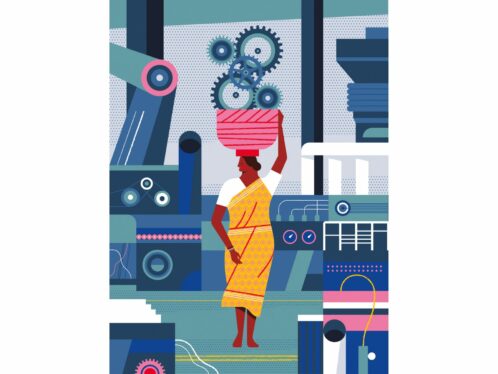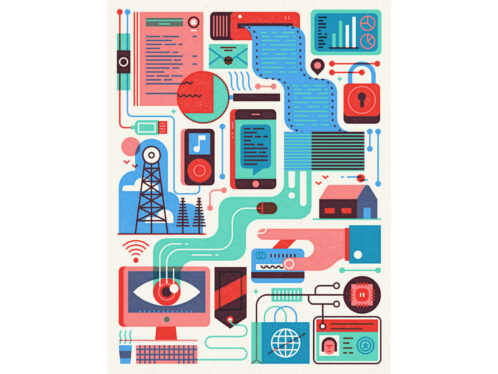Solution providers
Empowered consumers are increasingly calling on companies to step up and address global issues, and many businesses are happily rising to the challenge.
The world is facing a number of complex economic, social and environmental problems, with climate change among the most acute. So who do we call to save the day? According to a recent global study by communications company Havas Worldwide, the answer for many of us is the business sector. Research for the company’s Communities and Citizenship study involved questioning more than 10,000 adults in 31 countries about the roles that consumers, businesses and politicians should play. More than two-thirds of the respondents said that businesses have as much responsibility as governments for driving positive social change. Six out of 10 respondents said they expected corporations to play an increasing role in addressing the world’s major problems. The survey pointed to three main drivers behind these expectations: firstly, that companies have increased in size and power; secondly, that they are often seen as better run than governments; and thirdly, that in the age of social media, consumers feel more empowered to affect the behaviour of businesses. So, is the business world ready and able to take on the responsibilities that consumers expect of them? And do they want to? According to David Jones, the global CEO of Havas and the founder of the youth-leadership charity One Young World, doing good will be a matter of survival for companies in the years to come. “Through the power of social media, people are now able to censure businesses,” he says. “Those that act responsibly are rewarded, and those that misbehave are punished. From the toppled dictators of the Arab Spring countries to News International, from banker bonuses to tax evasion, people will sanction you if you behave in the wrong way.” In his book Who Cares Wins: Why good business is better business, Jones traces the evolution of socially responsible business from what he calls the “Age of Image” to today’s “Age of Damage”. He explains: “The Age of Image, in the 1990s, was all about trying to look green and responsible. Companies were not necessarily changing the way they did business, but were saying, ‘If we pretend we’re a nice, better, greener, more sustainable company, people will buy stuff from us.’ We are now entering the Age of Damage where if you, as a business, as a leader, don’t behave in the right way, the people, empowered by social media, will take you down.” The social responsibility of businesses is also attracting attention from the world of global politics. In a 2012 article in the British daily The Guardian, John Morrison, executive director of the Institute for Human Rights and Business, noted a clear move beyond “traditional CSR” (corporate social responsibility). He said the United Nations Human Rights Council’s move to adopt the UN Guiding Principles of Business and Human Rights in 2011 had sent a clear message. “Governments have now affirmed that all businesses have a direct responsibility for all their impacts and for preventing human rights harms they might cause, whilst ensuring that adequate remedies are available when abuses occur,” Morrison wrote. “The OECD [Organisation for Economic Co-operation and Development], European Union, International Standards Organisation and others have already aligned with the UN principles. Mainstream CSR now needs to be rethought.” One keyword that should be guiding businesses, says Jones, is “transparency”. But is there a risk of being too transparent? “It’s certainly important to remember the guideline, ‘If you wouldn’t want it printed on the front page of the newspaper, don’t tweet it,’” Jones says. “It’s easy to get yourself in trouble with jokes or remarks when you don’t think through just how public social media actually is.” So what about the textbook “raison d’être” of business – making money? In his book Jones refers to American economist Milton Friedman, who in the 1970s stated that the sole role of business was maximizing shareholder profits. Jones calls that assumption “obsolete”. However, consumers who want businesses to act ethically are not opposed to their making money, he says. “They just demand that it is done in the right way.” One phenomenon Jones observes in the Age of Damage is a new type of partnership between two players in society that used to be on opposing sides of development – non-governmental organizations (NGOs) and businesses. “[We’re now seeing] businesses coming to realize the importance of doing good in order to do well, and NGOs in turn working with and trusting businesses on effecting positive change,” he says. So what will the next “age” be? “It won’t be an age but instead will be the coming of age for business,” Jones says. “I am looking forward to a world where the most successful people got there because they had helped the most people or done the most good. And where the most profitable companies were the ones that had the most positive impact on the planet. That’s the world I believe we can create.”




